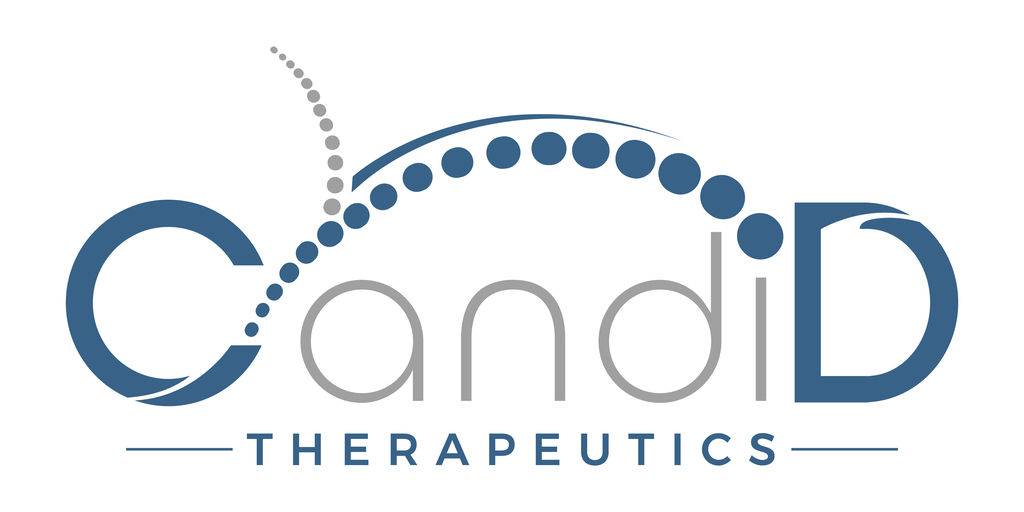预约演示
更新于:2025-05-07

Candid Therapeutics, Inc.
更新于:2025-05-07
概览
标签
免疫系统疾病
皮肤和肌肉骨骼疾病
肿瘤
三特异性抗体
双特异性T细胞结合器
疾病领域得分
一眼洞穿机构专注的疾病领域
暂无数据
技术平台
公司药物应用最多的技术
暂无数据
靶点
公司最常开发的靶点
暂无数据
| 排名前五的药物类型 | 数量 |
|---|---|
| 双特异性T细胞结合器 | 2 |
| 三特异性抗体 | 2 |
| 排名前五的靶点 | 数量 |
|---|---|
| CD19 x CD20 x CD3 | 1 |
| BCMA x CD3 | 1 |
| CD20 x CD3 | 1 |
关联
4
项与 Candid Therapeutics, Inc. 相关的药物作用机制 CD20抑制剂 [+1] |
在研机构 |
原研机构 |
非在研适应症- |
最高研发阶段临床1/2期 |
首次获批国家/地区- |
首次获批日期- |
作用机制 BCMA抑制剂 [+1] |
在研机构 |
原研机构 |
非在研适应症- |
最高研发阶段临床1/2期 |
首次获批国家/地区- |
首次获批日期- |
作用机制 CD19调节剂 [+2] |
在研适应症 |
非在研适应症- |
最高研发阶段临床前 |
首次获批国家/地区- |
首次获批日期- |
100 项与 Candid Therapeutics, Inc. 相关的临床结果
登录后查看更多信息
0 项与 Candid Therapeutics, Inc. 相关的专利(医药)
登录后查看更多信息
121
项与 Candid Therapeutics, Inc. 相关的新闻(医药)2025-04-19
·药事纵横
声明:因水平有限,错误不可避免,或有些信息非最及时,欢迎留言指出。本文仅作医疗健康相关药物介绍,非治疗方案推荐(若涉及);本文不构成任何投资建议。今日,一家专注于多特异性抗体及抗体偶联药物(ADC)研发的biotech橙帆医药( VelaVigo)宣布,其与美国Ollin Biosciences公司就自主研发的首创(FIC)双特异性抗体药物VBS-102达成全球独家授权协议。VBS102 为 IGF - 1R/TSHR 双特异性抗体药物,通过同时靶向 IGF - 1R 和 TSHR,有效阻断这两个信号通路及其潜在的相互作用,有望为甲状腺眼病(TED)患者提供一种新的治疗选择。根据协议,Ollin 公司将获得该药物在大中华区以外的全球开发、生产及商业化权益,橙帆医药保留大中华区权益。本次交易总金额最高可达 4.4 亿美元(约32亿人民币),包含首付款、开发、注册及商业化里程碑付款,此外,橙帆医药将获得授权区域销售的分级特许权使用费。此次合作是橙帆医药达成的第二项国际授权协议。早在2024年11月18日,橙帆医药与 Avenzo Therapeutics 达成全球战略合作协议。橙帆医药将授予 Avenzo 在全球范围内(不包括大中华区)开发、生产和商业化 Nectin4/TROP2 双特异性抗体偶联药物的权益,同时保留在大中华区的相关权益。橙帆医药将获得高达 5000 万美元的首付款及近期里程碑付款,在达成开发、监管审批及销售的关键里程碑后,有望再获得高达 7.5 亿美元的后续里程碑付款,并根据 Avenzo 区域的销售情况获取分级特许权使用费。关于橙帆医药橙帆医药(VelaVigo)成立于2021年,是一家专注于多特异性抗体及ADC药物研发的创新型生物技术企业,目前研发中心位于上海,并在美国波士顿设立临床运营中心。聚焦大分子相关的新技术,包括双抗 / 多抗、ADC 和新分子类型,建立了全面覆盖创新药价值链的完整体系,涵盖药物发现新技术平台、CMC 开发、转化科学、临床开发以及商业化等环节。专注于全球健康挑战的四个主要疾病领域,即癌症、自身免疫和炎症、神经退行性疾病和眼科,目前已建立了涵盖十余个首创 / 最佳(FIC/BIC)多特异性抗体和 ADC 分子的广泛研发管线,其核心产品预计将于2025年进入中美临床阶段。自2021年成立以来,橙帆医药已完成累计1亿美元融资,分别是2021 年获得 5000 万美元天使轮投资,2025 年完成近 5000 万美元的 Pre - A 轮融资。据统计,2024年全球双抗市场规模近130亿美元。而2020 ~2023 年底,已经有 14 个国产双抗创新药项目出海,交易总金额达到 221.38 亿美元。2024 年下半年以来,国产双抗更是迎来一波 “出海” 热潮,例如:7 月,康诺亚与 Belenos Biosciences 订立许可协议,授予后者两款双抗的全球独家权利,康诺亚将收取 1500 万美元的首付款和近期付款,以及最多 1.70 亿美元的额外付款。8 月,宜明昂科与 Instil Bio 就 PD - L1 x VEGF 双特异性抗体达成授权协议,将获得高达 5000 万美元的首付款和近期付款,里程碑付款超过 20 亿美元。8 月 5 日,嘉和生物与 TRC 2004 就 CD20/CD3 双抗GB261 订立许可协议,将获得股权、数千万美元首付款、高达 4.43 亿美元的里程碑付款及分层特许权使用费。8 月 9 日,默沙东与同润生物医药达成协议,以 7 亿美元现金首付款收购CD3×CD19双抗CN201,同润生物还有望获得最高 6 亿美元的里程碑付款。9 月 4 日,岸迈生物与 Vignette Bio, Inc. 就 抗 BCMA 和 CD3双抗EMB - 06 达成授权许可协议,岸迈生物将收取总计 6000 万美元的首付款对价,并有权收取最多 5.75 亿美元的里程碑付款及收入分成。11 月 13 日,百欧恩泰(BioNTech)宣布收购普米斯生物技术公司,收购价格最高近 10 亿美元,核心资产也是一款双抗产品。11 月 14 日,礼新医药与默沙东达成近 6 亿美元交易,默沙东获得礼新医药一款双抗全球权益。11 月 17 日,康诺亚生物与 Platina Medicines Ltd(PML)就 BCMA/CD3 双抗CM336订立独家许可协议,康诺亚将收取 1600 万美元的首付款和近期付款,在达成若干里程碑后,可收取最多 6.1 亿美元的额外付款及分层特许权使用费。参考资料:https://www.velavigo.com/cfnews/51EN.html
引进/卖出抗体药物偶联物
2025-03-31
▎Armstrong2025年3月31日,和铂医药公布2024年度业绩,全年总收入2.74亿元人民币,盈利约1941万元,这也是和铂医药连续两年实现盈利。截至2024年12月31日,和铂医药现金及现金等价物约12亿元人民币,财务状况保持稳健,为后续发展奠定了坚实的财务基础。值得注意的是,和铂医药2024年净现金流入高达2.21亿元,创历史新高。研发管线:差异化显著,临床开发快速推进和铂医药聚焦于免疫和炎症性疾病、肿瘤等治疗领域,拥有多款处于临床阶段及IND或IND申报准备阶段的、高度差异化的创新候选药物。FcRn抗体巴托利单抗于2024年6月递交治疗全身型重症肌无力(gMG)的上市申请并于7月获得受理。长效TSLP抗体治疗COPD的IND申请于2025年2月获批。新一代CTLA-4抗体普鲁苏拜单抗在针对晚期实体瘤的单药治疗以及联合PD-1抑制剂治疗黑色素瘤、结直肠癌、神经内分泌癌及肝细胞癌的临床试验中,均观察到了积极的疗效及安全性数据。全球首创B7H7抗体HBM1020,去年ESMO会议上披露初步临床数据,在接受治疗后肿瘤评估的15例患者中,7例患者(46.7%)达到疾病稳定(SD),其中2例患者观察到肿瘤缩小,缩小比例分别为11%和25%。后续还有多个管线处于IND或者准备IND阶段,包括转向自免领域的BCMA/CD3双抗,PD-L1/CD40双抗,B7H4/CD3双抗,全球首创LIFR抗体等。创新管线及技术:推动国际化全新模式和铂医药子公司诺纳生物已通过多元创新合作模式达成多项国际战略合作,并基于HCAb构建形成四大前沿核心技术,包括蛋白质工程、抗体偶联技术、药物递送技术和细胞治疗,应用场景也从肿瘤免疫向验证和免疫等更广泛的领域扩展,全面赋能新一代疗法开发。2024年5月,诺纳生物与阿斯利康就一款临床前抗肿瘤抗体达成授权合作。2024年12月,诺纳生物与Candid Therapeutics合作开发新一代TCE。2025年1月,超长效TSLP抗体通过NewCo模式出海。长效TSLP抗体的成功也标志着和铂医药的实力在向炎症领域扩展过程中得到验证。2025年3月21日,和铂医药宣布与阿斯利康达成全球战略合作,双方将共同研发针对免疫性疾病、肿瘤及其他多种疾病的新一代多特异性抗体疗法。根据协议,和铂医药将获得总计1.75亿美元的首付款、近期里程碑付款和额外新增项目的选择权行使费,以及最高达44亿美元的研发及商业里程碑付款,外加一定比例的销售分成。此外,阿斯利康还将对和铂医药进行1.05亿美元的股权投资。此次合作进一步优化了和铂医药的财务状况,可以最大化和铂医药创新能力的商业价值,加速创新管线的产出和全球临床开发进度,并为全球生物医药行业发展注入越来越多的创新源动力。总结药物形式层面,和铂医药的TCE在自免领域开始攻城略地,实体瘤TCE也蕴藏巨大机会,完成迭代升级的ADC平台可以助力进一步打造差异化优势的产品组合。在中国biotech公司中,和铂医药走出了一条独特的创新和商业化路径,连续两年实现盈利且2024年经常性收入增幅接近200%,不断证明这种模式的可行性和强大的增长潜力。2025年,和铂医药有望进一步扩大合作网络,建立更为广泛的全球合作伙伴关系。Armstrong技术全梳理系列GPRC5D靶点全梳理;CD40靶点全梳理;CD47靶点全梳理;补体靶向药物技术全梳理;补体药物:眼科治疗的重要方向;Claudin 6靶点全梳理;Claudin 18.2靶点全梳理;靶点冷暖,行业自知;中国大分子新药研发格局;被炮轰的“me too”;佐剂百年史;胰岛素百年传奇;CUSBEA:风雨四十载;中国新药研发的焦虑;中国生物医药企业的研发竞争;中国双抗竞争格局;中国ADC竞争格局;中国双抗技术全梳理;中国ADC技术全梳理;Ambrx技术全梳理;Vir Biotech技术全梳理;Immune-Onc技术全梳理;亘喜生物技术全梳理;康哲药业技术全梳理;科济药业技术全梳理;恺佧生物技术全梳理;同宜医药技术全梳理;百奥赛图技术全梳理;腾盛博药技术全梳理;创胜集团技术全梳理;永泰生物技术全梳理;中国抗体技术全梳理;德琪医药技术全梳理;德琪医药技术全梳理2.0;和铂医药技术全梳理;荣昌生物技术全梳理;再鼎医药技术全梳理;药明生物技术全梳理;恒瑞医药技术全梳理;豪森药业技术全梳理;正大天晴技术全梳理;吉凯基因技术全梳理;基石药业技术全梳理;百济神州技术全梳理;百济神州技术全梳理第2版;信达生物技术全梳理;信达生物技术全梳理第2版;中山康方技术全梳理;复宏汉霖技术全梳理;先声药业技术全梳理;君实生物技术全梳理;嘉和生物技术全梳理;志道生物技术全梳理;道尔生物技术全梳理;尚健生物技术全梳理;康宁杰瑞技术全梳理;科望医药技术全梳理;科望医药技术全梳理2.0;岸迈生物技术全梳理;礼进生物技术全梳理;康桥资本技术全梳理;余国良的抗体药布局;荃信生物技术全梳理;安源医药技术全梳理;三生国健技术全梳理;仁会生物技术全梳理;乐普生物技术全梳理;同润生物技术全梳理;宜明昂科技术全梳理;派格生物技术全梳理;迈威生物技术全梳理;Momenta技术全梳理;NGM技术全梳理;普米斯生物技术全梳理;普米斯生物技术全梳理2.0;三叶草生物技术全梳理;贝达药业抗体药全梳理;泽璟制药抗体药全梳理;恒瑞医药抗体药全梳理;齐鲁制药抗体药全梳理;石药集团抗体药全梳理;豪森药业抗体药全梳理;华海药业抗体药全梳理;科伦药业抗体药全梳理;百奥泰技术全梳理;凡恩世技术全梳理。
临床申请财报免疫疗法
2025-03-31
·和铂医药
2024年度业绩和铂医药(股票代码:02142.HK),一家专注于免疫性疾病及肿瘤领域创新药研发的全球生物医药公司,今日公布其2024年度业绩。王劲松博士和铂医药创始人董事长兼首席执行官2024 年对于和铂医药来说是具有关键战略意义的一年,公司在研发进展、业务拓展和运营管理等方面均取得重要突破。面对充满挑战的宏观经济环境,公司展现出较强的抗风险能力,在应对通胀压力、全球供应链中断和地缘政治不确定性的同时,始终坚守长期发展目标。过去一年,和铂医药持续推进战略升级,朝着成为一家具有可持续盈利能力的全球生物科技公司引擎迈进。公司扩大研发管线,更专注于免疫学、自身免疫性疾病和炎症性疾病等治疗领域。多个关键临床阶段项目取得显著进展,进一步践行我们为全球患者提供变革性疗法的愿景。公司持续加码技术平台建设,确保核心抗体发现技术保持行业领先优势。旗下全资子公司诺纳生物的战略增长,进一步巩固了我们在全球生物技术生态中作为领先合作伙伴的地位。此外,我们还通过与全球知名跨国企业达成多项授权及共同开发协议,持续推动业务合作,实现收入稳健增长。展望 2025 年,我们将继续致力于扩大全球影响力,为患者提供创新疗法。2024年业绩亮点截至2024年12月31日,和铂医药全年总收入约2.74亿元人民币(3810万美元),盈利约1941万元人民币(270万美元)。公司已连续两年实现盈利,充分彰显了其商业模式的独特性与可持续性。与2023年相比,公司收入的可持续性不断提高,全年经常性收入从4097万元人民币(570万美元)增长至1.21亿元人民币(1690万美元),增幅达196.5%。现金盈利(指经营性净现金流入)约2.21亿元人民币(3068万美元),达历史新高。同时,和铂医药保持稳健的财务状况,截至 2024 年 12 月 31 日,公司现金及现金等价物约12亿元人民币(1.668 亿美元),为后续发展奠定了坚实的财务基础。持续推进差异化产品管线和铂医疗是与诺纳生物并行的子品牌,现已独立负责公司产品管线的开发。目前,和铂医疗的产品开发聚焦于免疫和炎症性疾病、肿瘤等治疗领域,拥有多款处于临床阶段及IND或IND申报准备阶段的、高度差异化的创新候选药物。在炎症与免疫学领域,公司已建立丰富的临床前管线,涵盖基于HCAb的双特异性免疫细胞拮抗剂(HBICATM)技术生成的双特异性和多特异性抗体,以及针对免疫性疾病的超长效生物制剂。在肿瘤学领域,公司正在利用其HBICE®平台开发具有新颖设计和差异化作用机制的双特异性和多特异性抗体,如HBM9027(PD-L1xCD40)和HBM7004(B7H4xCD3)。此外,凭借Harbour Mice®平台及偶联药物平台的优势,公司还在探索更多治疗模式,如HBM9033(一款靶向MSLN的ADC)及其他处于早期开发阶段的ADC和RDC项目。临床阶段主要候选产品包括:巴托利单抗(HBM9161)是首个在中国完成临床一期至关键性临床试验的抗FcRn单克隆抗体,有望成为针对多种自身免疫性疾病的重磅疗法。公司于2023年12月自愿纳入更多长期安全性数据,于2024年6月向中国国家药品监督管理局(NMPA)重新递交巴托利单抗治疗全身型重症肌无力(gMG)的生物制品许可申请(BLA)并在7月获NMPA受理。2024年3月,巴托利单抗治疗全身型重症肌无力的III期关键性临床试验结果在《美国医学会杂志:神经病学》(JAMA Neurology)上发表,数据显示其在疾病长期管理中具有持续的疗效和良好的安全性特征。HBM9378是一款源自H2L2 Harbour Mice®平台,靶向胸腺基质淋巴细胞生成素(TSLP)的全人源单克隆抗体,由和铂医药与科伦博泰共同开发并平分其权益。与同靶点竞争产品相比,HBM9378具有更低的免疫原性风险及更好的生物利用度,其较长的半衰期优化设计和优秀的理化性质使得HBM9378在给药和剂型方面拥有潜在优势。公司于2022年2月获得NMPA对HBM9378治疗中重度哮喘的IND批准,随后在中国完成对健康受试者的I期临床试验。此外,公司于2024年11月向NMPA递交HBM9378针对慢性阻塞性肺疾病(COPD)的IND申请,并于2025年2月获得批准。公司与科伦博泰于2025年1月与Windward Bio签订许可协议,授予对方在全球范围内(不包括大中华区以及部分东南亚及西亚国家)进行研究、开发、生产和商业化HBM9378的独家权益。目前,Windward Bio正在筹备HBM9378的全球II期临床试验。普鲁苏拜单抗(HBM4003)是开发自HCAb Harbour Mice®平台的新一代全人源仅重链抗CTLA-4抗体,是全球首个进入临床阶段的全人源仅重链抗体。相较于传统的抗CTLA-4抗体,普鲁苏拜单抗具有显著增加的Treg细胞清除和优化的药代动力学等独特及良好的特性,有助于提高安全性。此外,通过增强抗体依赖的细胞毒性(ADCC),普鲁苏拜单抗提升了选择性清除瘤内Treg细胞的潜力,有望克服现有CTLA-4疗法的疗效和毒性瓶颈。公司已开展普鲁苏拜单抗治疗多种实体瘤的全球开发计划,并采用了普鲁苏拜单抗的适应性治疗设计。在针对晚期实体瘤的单药治疗以及联合PD-1抑制剂治疗黑色素瘤、结直肠癌、神经内分泌癌及肝细胞癌的临床试验中,均观察到了积极的疗效及安全性数据。HBM1020是一款基于H2L2 Harbour Mice®平台开发的靶向B7H7的全球首创全人源单克隆抗体。B7H7是一种新型免疫调节分子,属于B7家族,能独立于PD-L1表达从而在肿瘤免疫逃逸方面发挥关键作用。凭借其出色的产品设计和靶点特征,HBM1020有望解决实体瘤治疗领域尚未满足的巨大医疗需求。2024年9月,公司于ESMO年会上公布HBM1020针对晚期实体瘤患者的最新临床数据,数据显示HBM1020在晚期实体瘤患者中具有良好的安全性和耐受性。在接受治疗后肿瘤评估的15例患者中,7例患者(46.7%)达到疾病稳定(SD),其中2例患者观察到肿瘤缩小,缩小比例分别为11%和25%。IND及IND准备阶段的主要候选产品包括:HBM7020是一款利用全人源HBICE®双抗技术及Harbour Mice®平台开发的BCMAxCD3双特异性抗体。HBM7020能够通过靶向细胞表面的BCMA和CD3,将目标细胞与T细胞交联,从而有效激活T细胞并杀伤目标细胞。HBM7020通过设计两个抗BCMA结合位点,实现了对目标细胞的精准靶向,而单价优化的CD3活性则有效降低了细胞因子释放综合征(CRS)的发生风险。基于这些创新机制,HBM7020展现出强大的细胞杀伤效应,在免疫学和肿瘤领域均具有广阔的应用前景。2023年8月,HBM7020获批在中国启动针对癌症的I期临床试验。 2024年,公司调整了开发策略,将适应症转向免疫性疾病领域,目前正在准备递交IND申请。HBM9027是一款新型PD-L1xCD40双特异性抗体,采用HBICE®双特异性抗体技术及Harbour Mice®平台开发。该款PD-L1xCD40双抗的开发将公司的双特异性免疫细胞衔接器进一步扩展至树突状细胞/髓系细胞衔接器这一前沿领域,充分展现出HBICE®在几何结构上的灵活适用性及即插即用优势。2024年1月,HBM9027获得美国食品药品监督管理局(FDA)的IND批准,在美国启动I期临床试验。HBM7004是一款新型B7H4xCD3双特异性抗体,由HBICE®和Harbour Mice®平台开发,从疗效和安全性两个维度为癌症免疫治疗提供创新的解决方案。该产品的开发进一步巩固了公司的双特异性免疫细胞衔接器平台,彰显了HBICE®的灵活适用性和即插即用优势。在临床前研究中,HBM7004呈现出肿瘤内B7H4依赖性T细胞激活机制。在多种动物模型实验中,HBM7004表现出强劲的抗肿瘤效果、出色的体内稳定性以及较低的全身毒性。此外,在临床前模型中,HBM7004与B7H4x4-1BB双抗在低效应细胞与靶细胞比率条件下联用具有很强的协同作用,显示出令人振奋的治疗窗口。目前,公司正在进行HBM7004的IND筹备相关研究工作。HBM9014是一款同类首创、靶向白血病抑制因子受体(LIFR)的抗肿瘤疗法。该款全人源抗体疗法由Harbour Mice®平台研发,通过LIFR阻断多个IL-6家族细胞因子信号通路,以抑制其对肿瘤生长、转移的促进作用和对化疗的抗药性。在临床前研究中,HBM9014表现出显著的体内抗肿瘤疗效,并且在多种肿瘤模型中与顺铂联用疗效更佳。在灵长类动物的毒理学研究中,HBM9014也表现出良好的耐受性。2025年,公司将继续积极探索药物开发策略并寻求合作机会。战略业务合作最大化平台价值和铂医药始终致力于全球合作,这为其科研与商业成功提供了强劲动力。2024年,公司持续拓展与全球顶尖学术机构及行业伙伴的业务合作,在全球范围内共同推动创新与效率提升。依托平台技术优势,公司通过诺纳生物高效赋能行业创新者,为合作伙伴提供从发现至临床前研发等Idea to IND(I to ITM)完整服务。作为一家全球生物技术公司,诺纳生物致力于为包括科研院所、生物科技初创企业到跨国药企在内的全球合作伙伴提供一站式解决方案。自2022年底成立以来,诺纳生物已通过多元创新合作模式达成多项国际战略合作,并基于HCAb构建形成四大前沿核心技术,包括蛋白质工程、抗体偶联技术、药物递送技术和细胞治疗,全面赋能新一代疗法开发。2024年5月,诺纳生物与阿斯利康签署全球许可及选择权协议,共同开发用于肿瘤靶向治疗的临床前单克隆抗体。同年12月,诺纳生物与Candid Therapeutics达成研究合作及许可协议,探索新一代T细胞衔接器技术。此外,过去一年,诺纳生物还与Boostimmune、Alaya.bio、Umoja Biopharma、Alkyon Therapeutics、OverT Bio 和 Kodiak Sciences等多家合作伙伴在多个治疗领域开展研究合作。2025年1月,公司宣布与Windward Bio就靶向TSLP全人源抗体HBM9378签订许可协议,加速免疫性疾病疗法开发。2025年2月,公司孵化的创新生物技术公司HBM Alpha Therapeutics宣布与一家业务合作伙伴达成战略合作与许可协议,共同推进针对多种疾病的新型促肾上腺皮质激素释放激素(CRH)靶向疗法。这些合作案例进一步凸显了公司在拓展技术边界与探索创新路径方面的独特优势。凭借业界领先的技术平台和灵活的商业模式,公司将持续拓宽合作网络,实现平台价值最大化。以尖端合作驱动创新孵化和铂医药持续探索技术平台的更多应用场景,以充分释放其潜力。目前公司正在孵化多个合资项目,聚焦多价抗体、细胞治疗等新一代创新疗法领域,旨在通过拓展技术平台的应用范围,为公司创造更多价值。这种创新的孵化模式能够整合外部资源,以最小的边际投入获得高价值增长回报,助力公司实现新一代创新技术的多元化布局。其中具有代表性的孵化项目包括HBM Alpha Therapeutics和恩凯赛药。2025年展望:全球化发展与突破性创新并举展望未来,和铂医药将继续通过和铂医疗和诺纳生物的“双引擎” 驱动业务增长。2025年,和铂医疗将持续推进内部管线的全球临床开发进程,诺纳生物将继续为生物科技及制药企业提供一体化研发解决方案,不断完善促进生物医药发展的创新生态圈建设。基于公司Harbour Mice®技术平台及T细胞衔接器技术开发的多款产品将向免疫学领域拓展,ADC平台也将完成迭代升级。通过自主开发与商业合作相结合的方式,公司计划在免疫性疾病及免疫肿瘤领域打造具有差异化竞争优势的产品组合。通过战略合作实现平台价值最大化的商业模式将持续推动公司全球化发展。2025年,随着临床前产品管线逐渐成熟,公司有望进一步扩大合作网络,建立更为广泛的全球合作伙伴关系,巩固其在全球市场的领先地位。关于和铂医药和铂医药(股票代码:02142.HK)是一家专注于免疫性疾病及肿瘤领域创新药研发的全球生物制药企业。公司通过自主研发、联合开发及多元化的国际合作模式快速拓展创新药研发管线。和铂医药专有的抗体技术平台Harbour Mice®能够生成双重、双轻链(H2L2)和仅重链(HCAb)形式的全人源单克隆抗体。基于HCAb抗体平台开发的免疫细胞衔接器(HBICE®)能够实现传统药物联合疗法无法达到的抗肿瘤疗效。同时,基于HCAb平台开发的双特异性免疫细胞拮抗剂(HBICATM)为免疫及炎症性疾病领域创新生物药的研发提供了有力支持。Harbour Mice®、HBICE®、HBICATM与单B细胞克隆筛选平台共同组成了和铂的下一代创新治疗性抗体研发引擎。更多信息,请访问:www.harbourbiomed.com
临床申请财报
100 项与 Candid Therapeutics, Inc. 相关的药物交易
登录后查看更多信息
100 项与 Candid Therapeutics, Inc. 相关的转化医学
登录后查看更多信息
组织架构
使用我们的机构树数据加速您的研究。
登录
或

管线布局
2025年09月20日管线快照
管线布局中药物为当前组织机构及其子机构作为药物机构进行统计,早期临床1期并入临床1期,临床1/2期并入临床2期,临床2/3期并入临床3期
临床前
2
2
临床1期
登录后查看更多信息
当前项目
| 药物(靶点) | 适应症 | 全球最高研发状态 |
|---|---|---|
Cizutamig ( BCMA x CD3 ) | 重症肌无力 更多 | 临床1期 |
GB-261 ( CD20 x CD3 ) | 类风湿关节炎 更多 | 临床1期 |
CND-319 ( CD19 x CD20 x CD3 ) | 自身免疫性疾病 更多 | 临床前 |
T细胞衔接子三特异性抗体(药明生物) | 炎症 更多 | 临床前 |
登录后查看更多信息
药物交易
使用我们的药物交易数据加速您的研究。
登录
或

转化医学
使用我们的转化医学数据加速您的研究。
登录
或

营收
使用 Synapse 探索超过 36 万个组织的财务状况。
登录
或

科研基金(NIH)
访问超过 200 万项资助和基金信息,以提升您的研究之旅。
登录
或

投资
深入了解从初创企业到成熟企业的最新公司投资动态。
登录
或

融资
发掘融资趋势以验证和推进您的投资机会。
登录
或

Eureka LS:
全新生物医药AI Agent 覆盖科研全链路,让突破性发现快人一步
立即开始免费试用!
智慧芽新药情报库是智慧芽专为生命科学人士构建的基于AI的创新药情报平台,助您全方位提升您的研发与决策效率。
立即开始数据试用!
智慧芽新药库数据也通过智慧芽数据服务平台,以API或者数据包形式对外开放,助您更加充分利用智慧芽新药情报信息。
生物序列数据库
生物药研发创新
免费使用
化学结构数据库
小分子化药研发创新
免费使用

